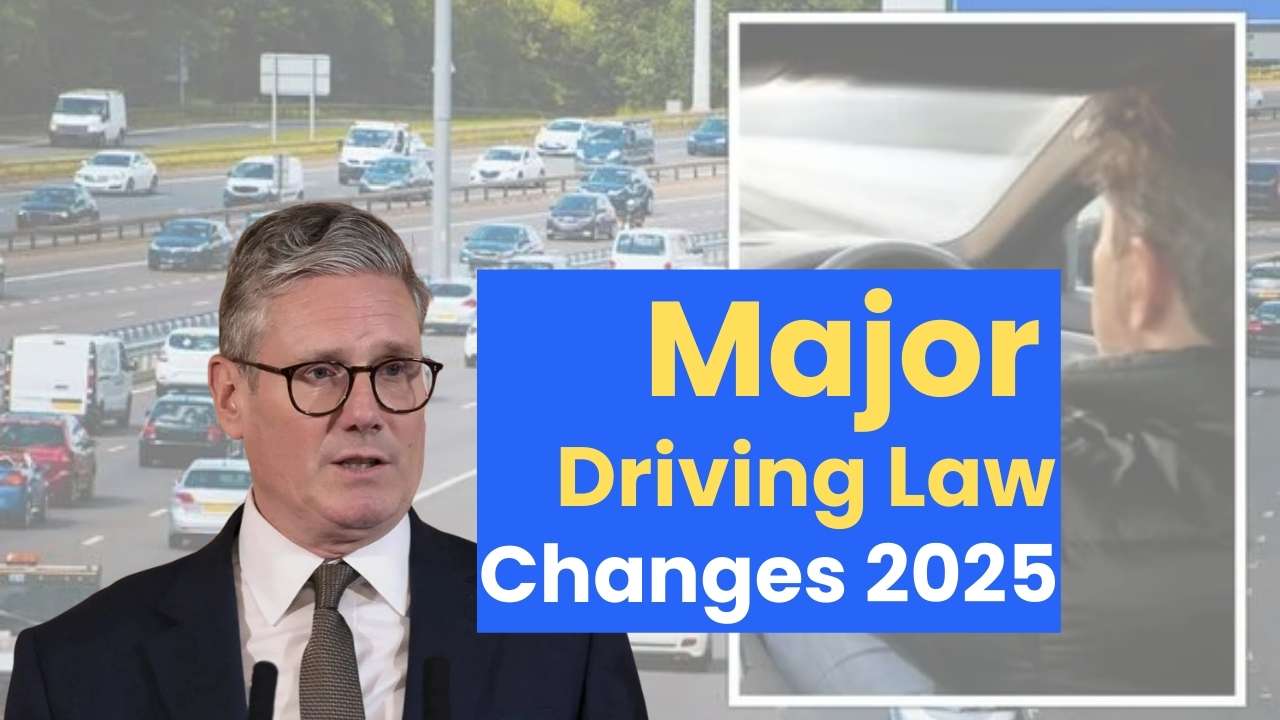As 2025 unfolds, drivers across UK are bracing for some of biggest shifts in motoring law in years. From fresh taxes on electric cars to tighter rules for heavy vehicles and even new nationwide speed limits, these changes will affect how we drive, how much we pay, and how safe our roads feel.
Some rules bring welcome relief, while others may pinch wallets or spark debate. Here’s a clear look at the major driving law updates every driver should be aware of. Check out all about UK Major Driving Law Changes 2025 from here.
UK Major Driving Law Changes 2025: New Rules, Taxes, and Safety Standards
The UK is rolling out sweeping motoring law changes in 2025, ranging from new EV taxes to stricter HGV permits and nationwide 20mph speed limits in Scotland. These updates aim to boost safety and sustainability while reshaping driving costs. For motorists, awareness will be key to avoiding surprise penalties and charges.
Electric car owners face the biggest shifts, with new road taxes, loss of congestion charge exemptions, and tougher charger reliability rules. Meanwhile, drivers of petrol and diesel vehicles see modest relief through the fuel duty freeze. Overall, incentives are shifting toward regulation rather than perks.
Safety is also at the heart of the reforms, with ADAS becoming mandatory in new cars and new permits required for HGVs in London. While many changes may feel costly or restrictive, they point toward cleaner, safer, and more transparent roads across the UK.
Fuel Finder Scheme: Ending Guesswork at Pump
By the close of 2025, all petrol stations across the UK will need to publish their fuel prices in real time, thanks to the official rollout of the Fuel Finder scheme. Stations will be required to update their prices at least every 30 minutes, allowing drivers to check apps or websites for the best deal nearby.
Reality Check – For years, fluctuating fuel prices have frustrated drivers, with many feeling ripped off at random stations. The new scheme should create transparency and competition. While this won’t stop fuel from being expensive overall, it will stop drivers from paying more simply because of poor timing or lack of information.
Company Car Tax (BiK) Rates Going Up
If you use a company car, 2025 is set to bring an unwelcome tax hike. From April 2025, the Benefit-in-Kind (BiK) tax rate will rise by 1% across the board.
- Electric vehicles will go from 2% to 3%.
- Petrol and diesel cars will also see increases, with the most polluting models facing up to 37% BiK tax if emissions exceed 154g/km CO₂.
Reality Check – For EV users, this increase is modest, but for high-emission vehicle users, the costs will add up quickly. The government’s aim is clear, steer drivers toward low-emission vehicles while still squeezing more revenue from the company car system.
Electric Vehicles Lose Their Tax-Free Status
The days of “tax-free” motoring for electric cars are officially ending. Starting 1 April 2025, new EVs will pay £10 Vehicle Excise Duty (VED) in the first year, followed by £195 annually.
If your EV costs more than £40,000, expect an additional £410 Expensive Car Supplement each year for five years.
Reality Check – EVs will still cheaper to run overall than petrol or diesel cars, but the tax-free golden era is gone. This shift may slow EV adoption for some households, especially given higher upfront purchase prices.
Fuel Duty Freeze Extended
A rare piece of good news: the fuel duty freeze continues until March 2026. The duty remains at 52.95p per litre, meaning no extra tax is added to the cost of petrol or diesel in 2025/26.
Reality Check – While this is relief for drivers, fuel prices are still influenced more by global oil markets than tax policy. The freeze prevents further pain, but doesn’t undo the cost-of-living squeeze at the pump.
Congestion Charge Exemptions Ending for EVs
From Christmas Day 2025, electric and hydrogen-powered vehicles will no longer be exempt from the £15 London Congestion Charge.
Reality Check – This change is controversial. On one hand, it signals the end of special treatment for EVs in the capital, recognising that congestion not just emissions needs managing. On the other hand, EV drivers who switched partly for perks like this may feel unfairly penalised.
Fines for Non-Compliant EV Chargers
The government is cracking down on unreliable EV charging points. Starting in 2025, charge point operators face fines of up to £10,000 per charger if they don’t meet new reliability, accessibility, and payment standards.
- Chargers must allow contactless payments.
- Operators must ensure high levels of uptime.
Reality Check – For EV owners, this is excellent news. Many have been left stranded by broken or confusing chargers. While rollout will take time, the long-term impact will be a more consistent, user-friendly charging network.
Scotland Introduces Nationwide 20mph Speed Limit
Following Wales’ lead, Scotland will roll out a 20mph default speed limit in urban and residential areas during 2025.
Reality Check – Drivers may grumble about slower journeys, but studies show lower speeds reduce accidents and save lives. Expect debate, but the long-term safety and pollution benefits are hard to ignore.
Mandatory Safety Permits For HGVs in London
From 4 May 2025, all heavy goods vehicles (HGVs) operating in Greater London must have a Direct Vision Standard (DVS) safety permit.
- Permits measure how well drivers can see vulnerable road users.
- Vehicles with poor visibility must install safety features like cameras and sensors.
Reality Check – This may add costs for haulage firms, but the scheme targets the serious safety risks posed by large trucks in busy city streets. For pedestrians and cyclists, it’s a welcome improvement.
New Standards For Driver Assistance Systems
From 2025, new cars must include advanced driver assistance systems (ADAS), such as:
- Automatic emergency braking.
- Lane-keeping assistance.
Reality Check – While this tech increases car costs, it also significantly boosts safety. The EU already requires such systems, and the UK is aligning. It’s another step toward semi-automated driving becoming the norm.
Zero-Emission Vehicle Mandate
As of 1 January 2025, carmakers must ensure that 22% of new car sales are electric and 10% of van sales are fully electric.
Reality Check – This pushes manufacturers to expand EV offerings, but some may pass compliance costs onto buyers. Expect a wider range of EV models, but prices may remain steep for now.
UK Driving Law Shake-Up in 2025
The UK’s driving laws for 2025 show a clear direction; cleaner, safer, and more regulated roads. While drivers may groan about higher taxes and tighter restrictions, many of these changes are aimed at balancing fairness, sustainability, and safety.
- Winners – Drivers who adapt early to EVs and embrace safety tech.
- Losers – Those clinging to high-emission cars or relying on outdated perks.
For everyday motorists, the key is awareness. From new congestion charges to surprise tax bills, being caught off guard could be costly. Whether you’re a commuter, a company car driver, or an EV owner, staying informed will help you steer through 2025 with fewer bumps in the road.












